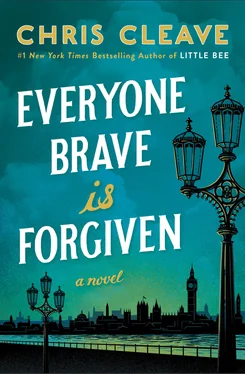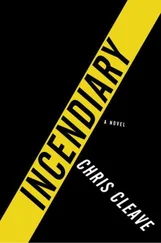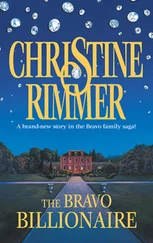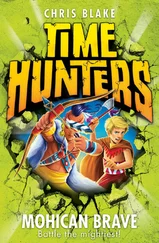Tom turned up the heat under the pan. “It’s different this time. I have already talked with Mary quite a bit. We have things in common.”
“Such as?”
“Such as our attitude to children, for example.”
“The two of you have discussed it already? I don’t believe I’ve even told you where babies come from.”
“Not having them, you fool. Educating them.”
“You haven’t been talking shop at her?”
“She came to talk to me, if you must know. I couldn’t get a word in.”
“And what was the gist?”
“That teaching has to change. That the teacher must be an ally of the pupil, and not just a disciplinarian.”
Alistair yawned. “Caesar proclaims that Mary gives him a headache.”
“Caesar pronounces before learning that Mary is jolly attractive.”
“Then why is she interested in you? I’m surprised you show up on her retina.”
“She came to the office, to ask me for a job. Apparently the War Office assigned her to teaching and we found her a post at Hawley Street School, but she got the boot for being incorrigible. She wants a new class to teach.”
“I didn’t think you had any classes left.”
“That’s what I told her, and yet she insisted. I said, ‘I’m sorry, but we’ve already evacuated everything with two legs and one head,’ and she said, ‘Well I’m afraid that’s just not good enough.’ Hands on her hips, and deliciously pink. So naturally I asked her what she damned well expected me to do about it, and she said: ‘I think you should damned well take me to dinner.’ ”
Alistair stared at him.
“What?” said Tom.
“Where to start? As I perceive it, you have three immediate problems. The first is one of professional impropriety. The second, personal ugliness.”
Tom raised two fingers. “And the third?”
“Is that your jam is looking punchy, old boy.”
“Damn it!”
The pan was at a murderous boil, spitting hot lava in all directions. Tom advanced on it, using the pan lid as a shield, spoon extended to the limit of his reach to turn off the heat. The boil faded to an aggrieved hiss and then to an occasional vindictive pop as a captured pocket of air escaped.
“Think you caught it in time?”
Tom prodded it. “It will set, I can promise you that. It could be jam, or it could be brittle.”
“We all know a girl like that.”
Tom ignored him. “Meeting Mary is the first thing to make me feel that this war might not be completely awful.”
“Oh, Tommy, just because the grown-ups have left you alone in the nursery for a little while, it doesn’t mean you can draw on the wallpaper.”
“Oh, come on. This isn’t kids’ stuff. I’m taking her to Spencer’s tonight.”
He’d tried for a worldly tone, but it came out sounding shaky. Maybe Alistair had a point. And he thought, my god, she is only eighteen. And the worst thing was that he knew her age only because he had gone straight from his office to the personnel department and pulled her file from the records.
“Sorry,” said Alistair. “Don’t mean to be discouraging. I suppose I’m just envious of your dinner.”
“No, that’s quite all right. I mean, now that I come to think, I can’t be sure what she meant by it. Maybe she does just want to talk about a job.”
Alistair raised an eyebrow and returned to his taxidermy.
“What?” said Tom.
“Nothing.”
“No, what?”
Alistair snapped a length of cotton with his teeth and threaded his needle again. “Only you could fret about what ‘dinner’ meant.”
“Yes, but what does it mean, in this context? Is she implying that she sees me as more than a job opportunity? Or is she demonstrating that I am so evidently merely that, that she can safely invite herself to dinner with no possible danger of misconstrual”
Alistair stared into space for a moment. “No, I’m afraid you’ve lost me. Could you do me a diagram, with different-colored pencils?”
“Or even,” said Tom, “could she be ambivalent about her feelings with regard to me, or unsure about my intentions with regard to her, and therefore, since she is very bright, could she have been making the suggestion in a deliberately obtuse fashion in order to observe the sense in which I construed it? You know, to see how I would react?”
“And how did you react?”
“I might have become slightly tongue-tied.”
“Oh, perfect. Fortunately she is unlikely to eat you for breakfast, since dinner will be the occasion.”
“Go to hell. But seriously. What do you think? You’re an experienced man.”
“I’m an experienced man who is currently stitching a dead emperor’s arsehole shut.”
“Yes, but even so.”
Alistair let his needle and cotton drop and looked up in exasperation. “There are two kinds of dinner and two kinds of women. There is only one combination out of four where both will be rotten.”
“But how awful if that was the case!”
Alistair said nothing. He finished stitching, snapped the thread and set the cat up on its paws. The balance was off at first, and he splayed the limbs until the creature held steady. “There,” he said. “Caesar bows to no man.”
He filled his pipe, lit it, and sat cross-legged on the floor, looking at the cat. There was something awry in his own posture, in his stiff back, and it saddened Tom. Sometimes it was no longer altogether funny, this double act they played in which he was the boy to Alistair’s man of the world. They had fallen into the roles in some primordial conversation in their friendship — something that must have raised a laugh at the time — and the joke had been good enough to bear a few cycles of elaboration and eventually to become a habit between them. And now here they were, two finches evolved to feed on a fruit that was probably becoming extinct.
Tom lit a cigarette and tried to make himself enjoy it. He took the empty Kilner jar, chipped out the last brown encrustations of tea-soaked sugar, rinsed it, and set it to boil in a pan of water. While the jar sterilized he took a spoonful of the jam and blew to make it cooler.
In the bright morning wash from the garret’s single skylight, the jam glowed in the metal spoon. Its center, where it was deepest, was indigo. At its shallow edges the color thinned to a limpid carmine. He closed his eyes and tasted it. By luck he had arrested it on the verge of caramelization, between honeyed and bitter. The sweetness of the blackberries revealed itself incompletely, changing and deepening until it dissolved from the back of the tongue with the maddening hint of a greater remainder. He was left with a question he could not phrase, and a galaxy of tiny seeds that crackled in his mouth like bereaved punctuation.
He stood with his eyes closed for a full minute before he took another spoonful. He was absolutely uncertain. Perhaps it was the most exquisite thing that had ever been cooked, or perhaps it was perfectly ordinary blackberry jam, on an averagely bright October morning, in an unexceptional attic in which two typical young bachelors were putting off the real duties of the day in pursuits at which they did not excel. Perhaps it was only average jam and perhaps Caesar, corpulent and lumpy and with his empty eye sockets spewing shreds of the newspaper, was only a poor stuffed cat.
Tom poured the jam into the hot boiled jar, snapped the lid shut and ran the glass under the cold tap to let the vacuum make the seal. He dried the outside of the jar, licked a bookplate label to activate the gum, stuck it onto the flat roundel on the jar and wrote: London, 1939 .
“Well?” he said. “And so what if she does only want a job? Teaching is important work, and I think she might be good at it.”
Читать дальше












